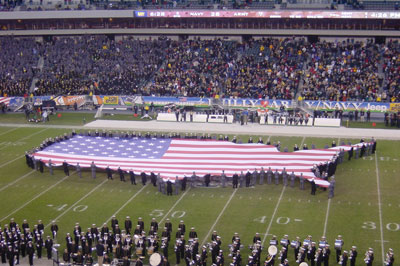All Nonfiction
- Bullying
- Books
- Academic
- Author Interviews
- Celebrity interviews
- College Articles
- College Essays
- Educator of the Year
- Heroes
- Interviews
- Memoir
- Personal Experience
- Sports
- Travel & Culture
All Opinions
- Bullying
- Current Events / Politics
- Discrimination
- Drugs / Alcohol / Smoking
- Entertainment / Celebrities
- Environment
- Love / Relationships
- Movies / Music / TV
- Pop Culture / Trends
- School / College
- Social Issues / Civics
- Spirituality / Religion
- Sports / Hobbies
All Hot Topics
- Bullying
- Community Service
- Environment
- Health
- Letters to the Editor
- Pride & Prejudice
- What Matters
- Back
Summer Guide
- Program Links
- Program Reviews
- Back
College Guide
- College Links
- College Reviews
- College Essays
- College Articles
- Back
Civil War in America
The Civil War was of the most horrid periods in American history. It had brother fighting brother, son fighting father, and families ripped apart. In 1861, the war sparked. As the first two years of the war came, the North’s hopes went. Humiliating losses such as those in the Battle of Fredericksburg and Bull Run left them wounded and tired. But, with Ulysses Grant as commander tides were about to be turned.
As the North learned from trial and error, they needed strong and authoritative leadership in their military to preserve the Union, and Grant brought just that. With a fresh new approach to war, he planned to wage total war against the South. He had intentions to destroy food and water sources and burn villages in the Confederacy, breaking their will to fight.
He planned to start his campaign by attacking Vicksburg, Mississippi, a confederate controlled village. Winning over Vicksburg would give the Union control of the Mississippi River which would also separate the Confederacy by splitting it into two regions. This would also hurt the South by cutting off a very helpful way of importing and exporting men and supplies. Using their aggressive battle plan, their goal was reached. On July 4, 1863, General John C. Pemberton and his men were overtaken by the Union. Not only did this victory help the North gain momentum, it cut off supplies between each divided region and left the southern economy damaged.
As Confederate Commander Robert E. Lee planned his first attack on Union soil his reasons were simple; a victory on Union soil may disrupt Northern morale, also this could bring strength to confederate spirit. But, nowhere on his mind was the actual outcome of Gettysburg: agonizing defeat for the Confederacy. As the Southern forces were met by General Meade’s Union Army, chances were even. But as time progresses, the North began to stand taller and taller as failed Confederate attacks were stomped out by the Union. On the first day, General Ewell failed to capture Culp’s Hill. Day two was highlighted by Chamberlin’s bayonet charge surfacing victoriously. Finally on day three, Pickett’s soldiers were brutally mowed down. Hope was growing for the North and slowly being destroyed for the South.
Gettysburg and Vicksburg proved to be hugely important battles for the Union and hope crushing for the South. It transformed losing chances into highly probable circumstances. The North now controlled the Mississippi and remained undefeated on home soil. The Union was tougher than ever and one step closer to preserving the a stable United States.

Similar Articles
JOIN THE DISCUSSION
This article has 0 comments.

The Civil War changed America forever.